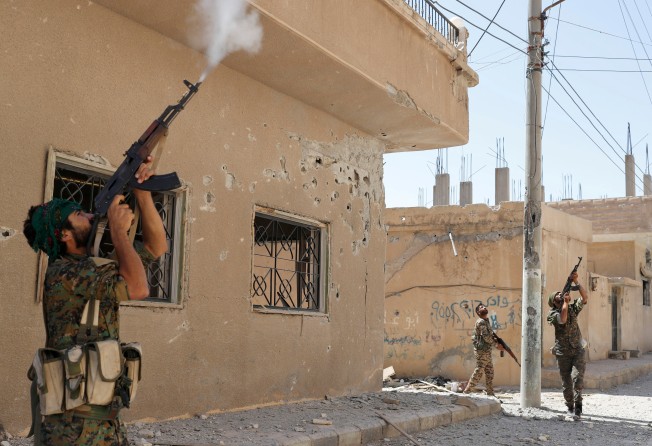South Korean man investigated over bid to join ISIS, theft of detonating devices
- The 23-year-old allegedly propagated terrorist activities by uploading videos and materials of ISIS’ acts, and was in contact with members of the group
- He is suspected of stealing the detonators for explosives during his stint in the military, but has denied any links to the militant group

A 23-year-old South Korean man is under investigation for allegedly seeking to join the Islamic State (ISIS) militant group and stealing detonating devices for explosives while he was serving in the military, a defence ministry spokesman said Tuesday.
If convicted, he would become the first South Korean to be punished under the country’s anti-terrorist law that went into effect in 2016, the Yonhap news agency said.
“He has been under investigation by civilian prosecution authorities,” the spokesman told the South China Morning Post, adding that the suspect had completed his obligatory military service and was discharged from the army last week.
All able bodied men in South Korea are required to serve about two years in the military.
The man – identified only by his surname, Park – allegedly stole the detonating devices in 2017 when he was training as an army explosive specialist, Yonhap said.
Investigators seized his mobile phone, on which the suspect had reportedly downloaded an app used by ISIS and video clips on making home-made ammunition. They also confiscated a wide-bladed knife at his home that bore a resemblance to those used by ISIS recruits.
Park allegedly propagated ISIS terrorist activities by collecting videos and materials of the group’s acts and uploading them on the internet from 2016 until recently. He also received emails from suspected members of the militant group.
Authorities began investigating him upon receiving intelligence from the US Federal Bureau of Investigation that someone from South Korea had access to the Amaq news agency, ISIS’ propaganda outlet.
The suspect strongly denied any links to ISIS, saying he collected all the materials out of “curiosity”, Yonhap said.
This is not the first case of a South Korean having links with the militant group. In January 2015, South Korean police said an 18-year-old developed an online fascination with ISIS before going to Syria, where he is believed to have been killed later that year.
While ISIS has lost its physical caliphate in Syria and Iraq, the group remains resilient and undaunted, according to a statement issued last month by The Global Coalition to Defeat ISIS.
“ISIS’ territorial defeat does not represent the terrorist group’s eradication or the end of the terrorist threat it poses,” the statement said. “While it continues to inspire terrorist attacks through active propaganda efforts, ISIS has also proved its resilience and adaptability, continuing to conduct lethal attacks.”
In March, US Assistant Secretary of State for Stabilisation Denise Natali said of ISIS’ current situation: “The threat persists.”
As hundreds of ISIS followers return home from fighting in the Middle East, Asian nations are grappling with how to deal with them – and whether they are welcome at all.
Malaysia’s top police officer last month warned that ISIS returnees from Syria and Iraq are frustrated with their failure to achieve martyrdom and could attempt suicide missions in their homeland.
“They have not been able to implement all their ideals, practise what they have been trained for … so they want to do this [holy mission] back home to release their frustration,” Inspector-General of Police Abdul Hamid Bador said in an interview with the Post.
Australia, meanwhile, is attempting to impose a two-year ban on foreign fighters seeking to return home, a measure the government says is needed to protect the country from extremism. Critics, however, say this would render Australian citizens effectively stateless in addition to violating other rights.